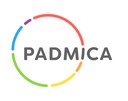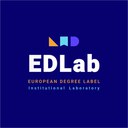International Office EU-funded Project Portfolio
Ghent University's central International Relations Office is actively involved in a wide range of externally funded projects related to the internationalisation of higher education. On this page you can find some of these projects, including some that have recently finished, but for which the outcomes remain highly relevant. For an exhaustive overview of all EU funded education projects that Ghent University was / is involved in, please visit this website.
AUREA - Automatic Recognition Assessment (01/01/2025 - 31/03/2027)

Coordinated by the European Student's Union and involving seven other partners, AUREA seeks to address challenges and promote unobstructed mobility within the Erasmus+ community, by assessing the state of play in recognition for mobile students undergoing credit mobility, creating a shared understanding of (full) automatic credit recognition on a European level, providing higher education institutions with the necessary tools and information to assess their readiness for implementation of automatic credit recognition and fostering evidence-based policy making.
EUREA is funded under the Erasmus+ programme as a Key Action 2 Cooperation Partnership in the field of Education and Training submitted by European NGOs (Call 2024).
PoMiSA - Potential of Microcredentials in Southern Africa (01/12/2023 – 30/11/2025)

The project is coordinated by the University of Johannesburg and involves 17 other partners in Lesotho, Mauritius, Namibia, South Africa, Estonia, Ireland and Belgium. As a first step, seven state of play reports were published, each exploring how micro-credentials are being conceptualized, developed, and implemented across the countries represented in the project. The reports can be accessed on the PoMiSA website.
The project will further develop principles and guidelines for good practice to support the systemic introduction of microcredentials in national systems in Southern African countries.
PoMiSA is funded under the Erasmus+ programme as a Key Action 2 Capacity Building in Higher Education – Strand 2 project (Call 2023).
PADMICA – scalable and low-resource Preparation And Debriefing Modules for students’ Intercultural Competence development Abroad (01/11/2023 – 31/10/2026)

Under the coordination of the Ghent University International Relations Office, PADMICA sets out to develop ready-made, scalable, and practice-oriented intercultural preparation and debriefing modules. The project will also enable international relations officers/higher education staff to deliver those modules by implementing a train-the-trainer module, generating new in-house expertise. Finally, PADMICA aims to ensure accessibility, broad exploitation and sustainability of the materials across higher education institutions.
PADMICA is funded under the Erasmus+ programme as a Key Action 2 Cooperation Partnerships in the field of Higher Education (Call 2023).
EDLab – European Degree Label Institutional Laboratory (01/03/2023 – 30/04/2024)

The EDLab project brings together a network of 13 full partner universities representing four European University Alliances: ARQUS, EUTOPIA, ENLIGHT and SEA-EU. Furthermore, the project involves 35 associated partners, being national authorities, quality assurance agencies, student and alumni associations, ENIC-NARIC, among others. Ghent University leads the work on the design and testing of the joint European degree label.
EDLab is funded under the Erasmus+ programme as a Key Action 3 European Policy Experimentation in Higher Education – Pilot a joint European degree label (Call 2022).
ENLIGHT: European University Network to Promote Equitable Quality of Life, Sustainability and Global Engagement through Higher Education Transformation (01/11/2020 - 31/10/2027)

ENLIGHT will contribute to the fundamental transformation of European Higher Education that empowers learners as globally engaged citizens with state-of-the-art knowledge, skills, and innovation potential to tackle major societal transitions and to promote equitable quality of life and sustainability. To this end, ENLIGHT will establish an open integrated space with free movement of students and staff and sharing of resources that gradually links the structures of quality assurance, international outreach and global engagement, talent recruitment and investment in large research infrastructure.
We develop new models for education and research adapted to the complex challenges cities face today, focusing on six flagship areas: health and well-being, digital revolution and impact of digitalisation , climate change, energy & circular economy, equity and culture & creativity. ENLIGHT boosts international learning across our inter-university campus, consolidating and widening access to flexible future-proof learning opportunities.
ENLIGHT will build impactful knowledge-creation, empowering academics for team-based science to provide a strong impetus to our mission-oriented and challenge-based approach. This deepens our societal engagement and brings our eco-systems together for maximum impact in education and research.
EDSSI: European Digital Student Service Infrastructure (01/10/2020 - 31/08/2022)

EDSSI is funded under the European Commission’s Connecting Europe Facility programme under grant agreement no. LC-01560120 CEF-TC-2019-4-001.
The partners of the project are: Aristotle University of Thessaloniki (Coordinator), Centre National des Oeuvres Universitaires et Scolaires, Deutsches Studentenwerk, Erasmus Student Network, European University Foundation, Fondazione Eendisu ente nazionale per il diritto allo studio e per i servizi agli studenti, Géant Vereniging, Groupement d’intérêt public pour le réseau national de telecommunications pour la technologie, l’enseignement et la recherche (Renater), Humboldt-UniversitätHumboldt-Universitaet zu Berlin, Unit – direktoratet for ikt og fellestjenester i hoyere utdanning og forskning, Universidad de Málaga, Universidade do Porto, Universitat Jaume i de Castelló, Universiteit Gent, Uniwersytet Warszawski, Vetenskapsradet.
Erasmus without Paper (01/01/2022 - 31/12/2025)

The Erasmus Without Paper (EWP)- Competence Centre provides you with guidance on digitising the internationalisation processes at your Higher Education Institution.
RECMAT: Recognition Matters (15/10/2017 - 14/10/2021)

The project raises awareness among academic staff about the importance of academic recognition and fair grade conversion and provides information on concrete ways to facilitate the implementation of a full recognition process. This will contribute to the harmonization of academic recognition processes between Latin American institutions.
The Rec-Mat project proudly presents several interesting outcomes among which: a Digital Interactive Compendium, Guidelines on Recognition, several MOOC’s on academic recognition.
You can find all related information on the YouTube Channel and on Linktree.
FESC: Framework for Erasmus staff competences (01/09/2018 - 31/05/2021)

Relevant intellectual outputs are:
- E+ staff competencies and audit framework
- a training toolkit
- policy recommendations
Erasmus Skills (01/09/2018 - 31/03/2021)

The core of “Erasmus Skills” is to ensure that students are more aware of the process they go through while going on exchange and the impact this has on their skills, their personal development and their place in society as active citizens. The project aims to enhance the reflection of students about these aspects by deploying innovative tools on the impact of an exchange experience, which will be used both by students and university staff members.
The exploitation of results will reach optimal results by further developing the Erasmus+ mobile App, allowing students to self-assess their mobility experiences as they go on their smartphone. In addition, the project will also include the design of a methodology supporting academics on integrating learning mobility outcomes into curricula, which will certainly allow providing institutions and academics with recommendations and advice on how mobility is relevant to specific academic disciplines.
YEBO: Internationalisation of doctoral studies in South Africa (15/10/2017 - 14/10/2020)

Nevertheless, this internationalisation can be seen as unreachable for most universities due to the lack of resources but also because of the lack of experienced supervisors. This is something that the European Union has focused on for years.
For the YEBO! project, partners clearly identified a need to train supervisors in order to allow them to be more efficient with PhD candidates.
e-Quatic: Online Quality Assessment Tool for International Cooperation (01/11/2017 - 31/10/2019)

